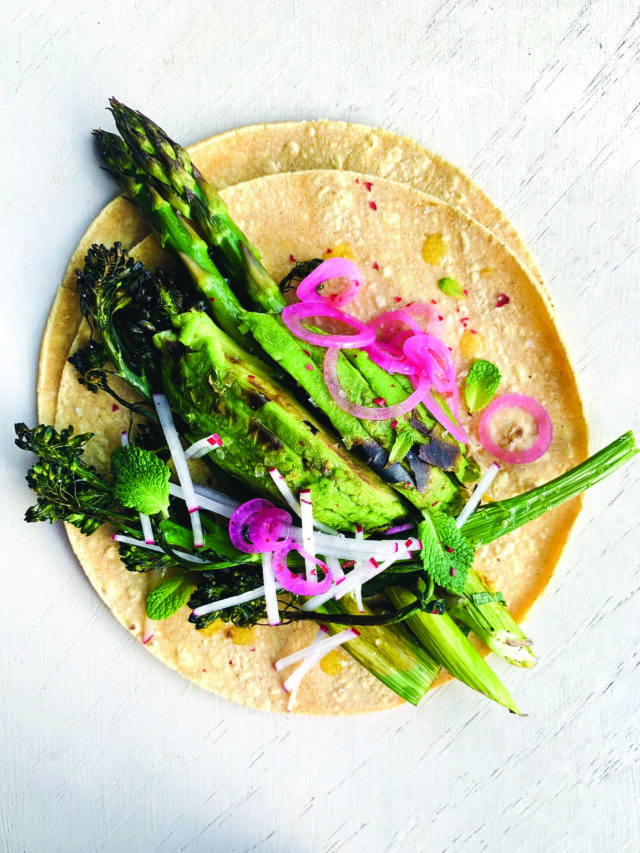
by Julia Szabo
Since March, many people have succumbed to a new strain of the “Freshman 15”—the “COVID-19,” i.e. varying quantities of extra weight packed on during lockdown. Even more stressful than that first year away from home, months of sheltering in place and fearing contamination from the pandemic took a toll on our physical and mental health. Seeking edible comfort, we might have made a few unwise food choices. With gyms and parks closed but liquor stores deemed essential, it was tough to adhere to a fitness regimen—and all too easy to turn repeatedly to the bottle or kitchen for solace, as banana bread became the most-Googled recipe, and any time was snack time. But now, as we finally emerge from quarantine while the coronavirus still circulates, staying fit is more important than ever.
“At the beginning of the pandemic, my clients didn’t want to talk to me,” says nutritional and culinary coach Silu Sao Narvekar. “I get it: During March and April, they were in survival mode, baking and doing a lot of emotional eating, stress eating, boredom eating. Before talking about a protocol for getting rid of excess weight, we need to get back to a balance: The weight could cause digestive issues, fatigue, joint problems—so let’s try to rectify those things first, because when you’re healthy, eating the right-for-you combination of fats, carbs and proteins, you will be at a good weight. We know that sugar reduces good gut microbes, especially if you have digestive issues; it makes the gut lining more permeable to things that shouldn’t be getting into your bloodstream, and your immune system goes ‘What’s that?!’ So we work on diversifying the gut microbiome to avoid a leaky gut, which increases your chances of having a better immune response”—critical amid concerns of a second pandemic wave.
“I love to eat, and I love that more people are cooking at home,” Narvekar adds. “Having a well-stocked pantry enables you to make healthy food taste so good. I keep on hand dried mushrooms, tahini, nutritional yeast and several kinds of dried chili peppers. In the freezer, I store tortillas, great for making avocado tacos: rehydrate two dried peppers, slice an avocado, then blend the softened peppers with a clove of garlic, some diced onions and olive oil. I also keep nuts and seeds in the freezer; hemp hearts are awesome, with 10 grams of protein per tablespoon. Nuts and seeds are all game-changers, but they can go rancid very easily—plus, if I keep them on the counter, I’m more apt to walk by and snack on them! Pumpkin seeds are a great way to get good fats from ingredients you already have; add them to your avocado tacos.” Rounding out the well-stocked pantry: miso paste, apple cider vinegar (both potent probiotics), tamari and maple syrup. “Take eggplant—grilled, baked or broiled—then take a little miso paste and maple syrup, blend them together, add a splash of tamari, and you have something fantastic.”

With so much uncertainty and fear in the air, steering clear of unhealthy foods—artificial sweeteners, processed foods loaded with nitrates and sodium, gluten, dairy and alcohol—is essential, and empowering. If wine is essential to you, enjoy reds or rosés by drinking and even cooking with them, in measured amounts. “It’s fine to use a couple of tablespoons of wine to deglaze a pan when doing, say, scampi with zucchini noodles and cooked shrimp,” Narvekar says. “As a coach, my goal is to give people safety and security in their bodies, so they feel good. When we feel good, we can put our dreams into reality, and hopefully inspire others to do the same.” She recommends keeping a food journal: “So much research says journaling helps change a habit—so, to break the habit of late-night snacking, we want to identify what triggers it. Food is comfort and security, especially when we feel such anxiety right now. Journaling is a great way to see your patterns. You’ve gotten to the root of how to make that change, so you’re more likely to lose weight and to keep it off.”
When making changes, go small; avoid radical shifts, experts say. If you have put on excess weight, don’t place additional stress on your immune system by attempting any crash diet or other extreme makeover. “Do increase your exercise gently, set reasonable goals and be gentle with yourself,” advises Dr. Laurie Nadel, psychotherapist, trauma specialist and author of The Five Gifts: Discovering Hope, Healing and Strength When Disaster Strikes (HCI Books; foreword by Dan Rather). “This is not a good time to take on extreme lifestyle modification. Balance healthy eating and hydration, exercise and rest, with the emphasis on balance.”
Prevent a return to overeating by avoiding reminders that could trigger anxiety. “The American Red Cross says that whatever emotional upheaval you experience during a disaster, you are a normal person having normal reactions to an abnormal situation,” Nadel adds. “But you may want to get professional help for psychological symptoms that go on too long: if you experience flashbacks, reliving something particularly disturbing about the pandemic or the lockdown, the shutting down and isolation.”
Allow yourself time to mourn all that’s now gone: “There was a sudden, violent loss to our way of life, and we need to identify it as traumatic grief,” Nadel concludes. “After a disaster, healing is not a straight line; we’re never going back to what ‘normal’ was, and we have to learn to coexist with uncertainty.



